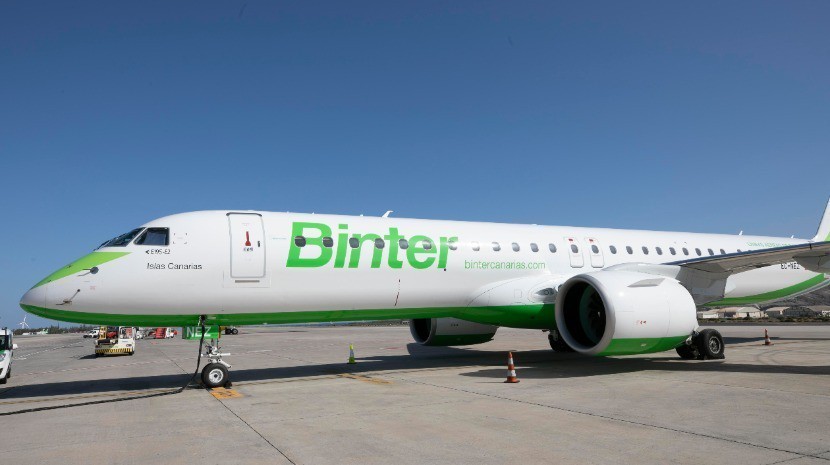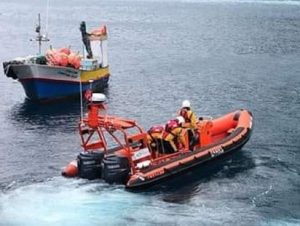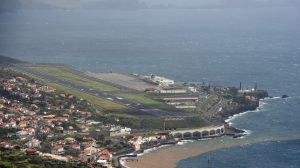Local PSD deputy, Bernardo Caldeira, has expressed his concerns about the air connections between Madeira and Porto Santo, noting that there has been no evolution regarding the public tender for the concession, which is nearing the end of its current contract.
In his statement he said: “It’s been two weeks since we presented two proposals on this matter, one alerting the Government of the Republic to the timely opening of the international public tender for the airline, with the respective claims that we want to see safeguarded in the specifications, and another so that TAP competes in this tender, with the possibility of connecting Porto Santo to mainland Portugal, throughout the year.”
Bernardo, who was born in Porto Santo, further remonstrated that there is a considerable need for a reliable air service that meets the needs of the island and the Porto-Santenses.
However, there has been a third proposal, which to my knowledge has not been brought to the table.
Current Situation:
At face value travel between Madeira and Porto Santo is satisfactory with a daily/almost daily ferry service and a twice daily air connection between the two islands. Currently the air connection is operated by Binter Air Services using an ATR50 (50 seat passenger aircraft). It is probable that this arrangement works well, although statistics suggest that the current aircraft used by Binter is too large in terms of passenger capacity and can only be used for the transportation of passengers and light freight and mail. Moreover, its schedule is such that the aircraft is underutilised and is thus an underperforming asset.
With the ferry service shouldering the weight of interconnection services in terms of the carriage of vehicles, freight, occasional livestock and passengers, this paper does not propose the replacement of this service by additional flights or the use of larger aircraft, as a Boeing 747 would be required and this is clearly impractical, not to mention costly and inefficient. Rather, improved utilisation of a more suitable aircraft would generate additional income and make possible other tourist attractions for both islands.
Proposal Outline:
The provision of additional tourist activities and improved utilisation of an underused aircraft is entirely feasible, but not with the existing aircraft. Passenger statistics suggest that an aircraft with a passenger carrying capacity of 19 would satisfy pre-Covid requirements with additional flights on an Ad Hoc arrangement during peak season. Given that tourist numbers may not recover for some time, this represents a baseline planning position.
The additional tourist activities to be undertaken include; pleasure/sightseeing flights around the islands, Desertas and possibly the Savage islands, parachute jumping and sky diving. In addition, aeromedical evacuation flights from Porto Santo to Madeira could also be undertaken. Such activities would not require an expensive or sophisticated aircraft, but one that can undertake a variety of roles, have a proven reputation for reliability, good logistical support and rugged construction.
Two aircraft have the potential to satisfy these requirements, the Canadian built DHC Twin Otter (now marketed as the Viking Twin Otter) and the British Britten-Norman Islander. Both are still in production and are particularly appreciated by small airlines operating from austere airfields with limited facilities in remote areas. Both feature fixed undercarriages, thus avoiding costly and complex hydraulic systems. The Twin Otter has the additional benefit of being able to operate using floats or skis.
A number of options are based on outright purchase and leasing options. For the type of operation envisaged leasing arrangements offer the greatest benefits including avoidance of high purchase costs. Lessors can also provide aircrew, maintenance, and insurance. It would also be necessary for the provision of a replacement aircraft to cover routine maintenance and any unserviceability for whatever reason.
Airline
Binter Air Services – currently successfully operate the airlink between the two islands. However, the aircraft currently used, (ATR50) is too big for the route, and flights only carrying five passengers are not cost effective. Also, the aircraft can only be used as a passenger and light freight carrier.
TAP – Portugal Franchise – Airline is already in existence; franchise may be possible. Drawbacks, TAP is heavily unionised making it difficult to work with, ungainly and too restrictive. Madeira’s independence within the airline may be heavily compromised and again restricted. Ticket pricing may also be influenced by airline, giving less flexibility as ticket prices need to be comparable to those offered by the Porto Santo Ferry Line.
Creation of small independent airline (MIGAS) – expensive, but not impossible. Opposition from TAP – Portugal and mainland government. However, it would give greater flexibility with regards to staffing terms and conditions as well as allow the airline to choose the best aircraft for the job, rather than using one that is simply available.
MIGAS – The Madeiran government would potentially hold a nominal interest in the company; however, investors would have a majority holding and be responsible for day-to-day operations.
Airport Conditions:
- Airline must have the same concessions as those enjoyed by the Porto Santo Line, vis-à-vis airport taxes/landing fees, harbour charges and government subsidies.
- Landing fees – need to be discuss, if charges are to be levied, to either a single fixed fee that includes check-in and gate facilities or if it will be a lower landing fee with extra charges for use of gates and check-in facilities.
- Baggage handling fees.
- Airport parking.
- Aircraft servicing would have to be based in either Madeira or Porto Santo to ensure that in future any pandemics or lockdowns would not affect the aircrafts serviceability or mean that the aircraft would have to be quarantined on a different continent. This would ensure the continued running of the airline through any outside disaster.
- Porto Santo would make an ideal base to conduct pleasure flights and parachuting activities as it is probably underutilised.
Tourism Benefits:
An independent Madeiran owned airline, albeit a small one, would allow for further growth within the tourism sector. As already mentioned, the aircraft can be used for
- Scheduled inter island flights.
- Skydiving/parachute jumping.
- Pleasure flights around the islands, the Desertas and even the Savage Islands
- Due to its range, it could be used to operate once weekly scheduled flights to smaller airports on the mainland – obviously refuelling, and other airport charges would have to be factored on. In 2020, the Hotel Baleira group offered flights from three remote airports on the mainland to Porto Santo.
- Weekly scheduled flights to Marrakesch (853 km), Casablanca (876 km), Tangier (1,074 km) and Rabat (947 km) (North west Africa) and the Canaries (498 km). ¹
- Nostalgia flights (Sea Plane), of course this is weather dependent, but it could create another tourist attraction, especially as some floats are fitted with integral wheels – allowing for water and tarmac take off and landings.
¹ A second aircraft may need to be leased/purchased at a later date if these routes proved popular to ensure that the airline’s scheduled commitments are honoured.
Local Benefits:
Localised employment opportunities.
- Creation of an airline that serves the people of Madeira and Porto Santo and will further advertise the two islands as ideal holiday destinations.
- Further tourism opportunities which will boost the islands fragile economies.
- Possible creation of an Air Club for 11-year-olds upwards to foster aircraft enthusiasm and create a basis for those interested in pursuing a career in aviation. This could also include Scouts and Girl Guides, where unoccupied seats on pleasure flights could be offered to those interested at either no or minimal cost to ensure that teenagers have the opportunity to fly, and foster airmindedness in the younger generation.
- A reduction in government subsidies depending on the success of this venture.
EU Subsidies:
Under the current conditions it would be advisable to explore whether EU subsidies would be available to either purchase or lease an aircraft, as well as investigate what other options and support the EU would be willing to provide.
Conclusion
In the current pandemic the global aviation industry has taken a substantial ‘hit’ and a return to pre-Covid-19 levels of activity are unlikely in the immediate future.
Against this backdrop, now is probably the right time to seriously examine the proposal outlined in this paper and determine the likely costs and industry interest.
Furthermore, aircraft manufacturers faced with a potential reduction in orders and a glut of unused aircraft throughout the world are more likely to offer new and nearly new aircraft on favourable terms.
To survive, Madeira and Porto Santo must broaden their appeal to all age groups through the provision of different and more adventurous activities, and this paper is submitted in support of this process.
Perhaps it’s time to start looking for new ideas to solve old problems!
Samantha Gannon
info at madeira-weekly.com






